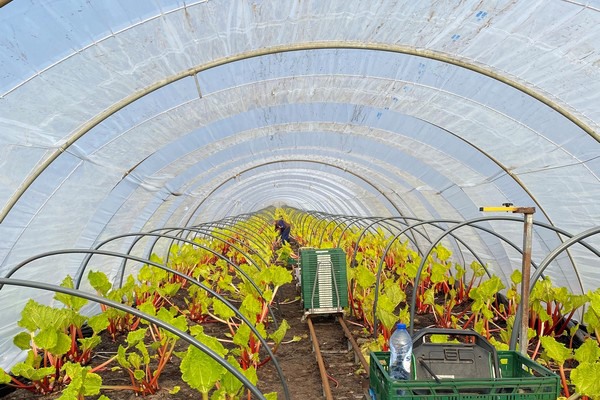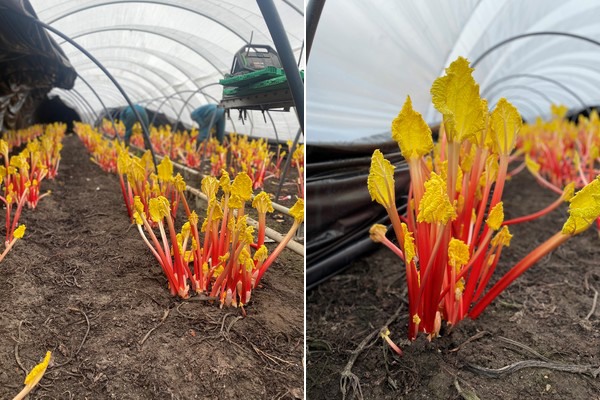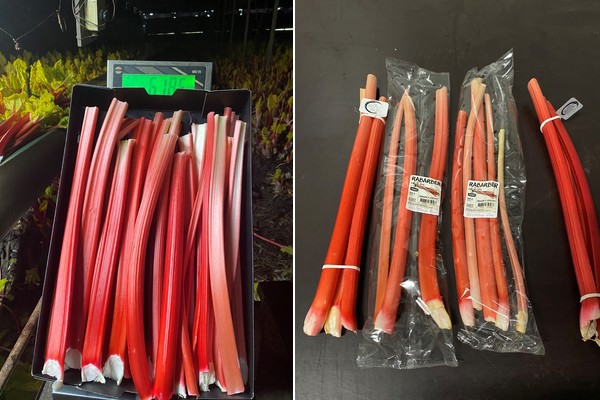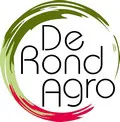In a few weeks, De Rond Agro will once again commence its rhubarb production from heated tunnels, a development eagerly anticipated as the availability of the product has been lower than usual in recent weeks. "This autumn hasn't been the easiest, resulting in a generally reduced availability of rhubarb lately."
 However, demand has surged, as the experienced grower from Hoeven in Brabant points out. "Two weeks ago, things were quite sluggish, but by the end of that week, the situation had completely reversed. From all corners, Europe and beyond, there's suddenly a strong demand for rhubarb. This spike in interest is typical for this time of year. The first few days after Fruit Logistica, everyone is settling back into routine before business returns to normal. Once that happens, demand skyrockets. Nevertheless, due to the current limited supply, this has also impacted prices."
However, demand has surged, as the experienced grower from Hoeven in Brabant points out. "Two weeks ago, things were quite sluggish, but by the end of that week, the situation had completely reversed. From all corners, Europe and beyond, there's suddenly a strong demand for rhubarb. This spike in interest is typical for this time of year. The first few days after Fruit Logistica, everyone is settling back into routine before business returns to normal. Once that happens, demand skyrockets. Nevertheless, due to the current limited supply, this has also impacted prices."
"For the coming period, I expect that from week 11, there will be more available in the market," continues Rob. "It's purely speculative, but I'm hopeful we're heading in that direction. Nevertheless, we generally have little to complain about. Together with The Greenery, we're still pushing forward with our England narrative, and Switzerland has also launched its retail programs."
Commodity versus niche
"However, it's challenging to adapt to the volatility in a niche product like this, which can cause rapid changes on both ends of the spectrum. The United Kingdom and North America are important markets for us, but demand there often depends on local production. Especially in the UK, demand drops after New Year's as local production increases. There's always a preference for local products. Only when there are fewer growers in production, they might add a few pallets of Dutch product for risk diversification."

"This also extends to the United States to a greater extent. One week everything can go that way, and the next, almost nothing. There, too, we've seen an increase in local production from February/March recently. This highlights the difference between a niche product and a commodity. A truckload of pears, for example, always sells relatively quickly, but if there's a pallet too many or too few of rhubarb, it can cause significant market shifts. That's why we're always glad to have certain retail programs with The Greenery, allowing us to offload our product and create some continuity for the company."
Gut feeling
De Rond Agro aims to supply rhubarb nearly year-round through precise cultivation planning, transitioning from open ground in the summer to greenhouses in winter and tunnels in spring. Despite the challenges, Rob looks forward to the summer season with optimism. "The last weeks of the greenhouse season are now underway, but it has been challenging. Generally, we've had a wet autumn and winter. The frost period was enjoyable for many, but it also brought 10 to 15 cm of snow, which then turned into water. This has made growers cautious about how spring and summer will unfold. The excess water could lead to yield losses, so it remains to be seen how this will develop."
 "Due to climatic challenges, there are increasingly more factors to consider. We're looking at and acting on our field choices, but I find it difficult for the upcoming summer season. You shouldn't read too much into certain things. If they grow well, they grow well. However, when growers start to anticipate problems, their gut feelings often prove correct. Nevertheless, I still expect we'll have a great summer ahead. The variety keeps it challenging," Rob says with a smile.
"Due to climatic challenges, there are increasingly more factors to consider. We're looking at and acting on our field choices, but I find it difficult for the upcoming summer season. You shouldn't read too much into certain things. If they grow well, they grow well. However, when growers start to anticipate problems, their gut feelings often prove correct. Nevertheless, I still expect we'll have a great summer ahead. The variety keeps it challenging," Rob says with a smile.
For more information:
Rob de Rond
De Rond Agro
Gors 127
4741 TC Hoeven
0165-312314
[email protected]
www.derondagro.nl
